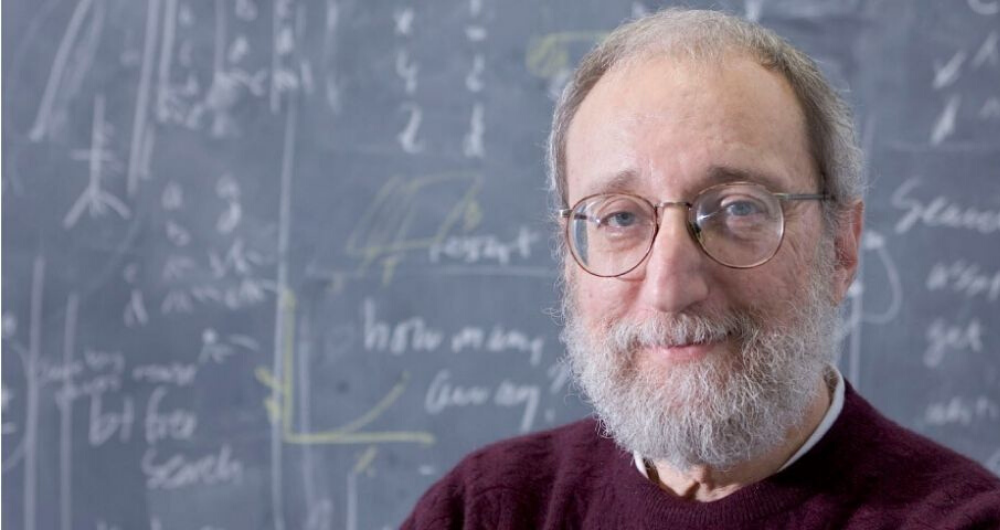
Insight researchers feature strongly in this year’s awards
At a ceremony at UCC on Thursday 10th of October, Professor Eugene Freuder received UCC’s top research recognition: its Career Achievement Research Award.
Professor Eugene Freuder is widely regarded as the father of the field of constraint programming. Prof. Freuder’s research record is simply outstanding. We can think of no one in the international constraint programming research community who is more esteemed. Prof. Freuder was in at the beginnings of the field and published many of the foundational papers. Since then he has maintained a remarkably consistent record of publishing papers that make a major contribution to the field. His papers are among the most cited in the field, sometimes establishing whole sub-areas with many researchers building upon his ground-breaking work.
In early work, Prof. Freuder contributed two fundamental concepts to the study of constraint satisfaction: the concept of backtrack-free search and the concept of generalized local consistency. These two concepts have proven strikingly fruitful, spawning, and continuing to spawn some forty years later, an immense amount of follow-up research (including work by Rina Dechter and Judea Pearl, a recent Turing award winner) – a testimony to their importance. A later paper of Eugene’s (with Alan Mackworth) solved a problem regarding local consistency that had been open since David Waltz first discussed it in the early 70’s. This paper was honored in a special anniversary volume of Artificial Intelligence, as one of the papers in the first fifty volumes of the journal most cited in the five years after their publication. This paper continues to be regularly cited in the literature and much future work has focused on improving the complexity bounds on the algorithms discussed in the paper. In the early 2000s, Gene moved to UCC in Ireland and created 4C (the Cork Constraint Computation Center), a first-class, flagship research centre for the community that has helped, directly or indirectly, a generation of researchers and the community as a whole. His research at 4C on knowledge acquisition and reformulation during the 2000s also led to significant research lines. In addition to his numerous research contributions, Gene has helped create the constraint programming community, being the first chair of the ACP executive committee, the organizer of the 1996 international conference on constraint programming, and the first editor of Constraints, the main journal of the community. Gene in fact negotiated, in his usual expert way, the contract with Kluwer in the mid-1990s. Gene has always worked in ensuring smooth transitions, relinquishing the lead of the ACP EC to Francesca Rossi and choosing Peter van Beek as his successor as editor in chief of the Constraints.
Professor Freuder was elected a Member of the Royal Irish Academy, and a Fellow of the American Association for the Advancement of Science, the Association for the Advancement of Artificial Intelligence, and the European Coordinating Committee for Artificial Intelligence. He was honored to receive both the Research Excellence Award and the Distinguished Service Award of the Association for Constraint Programming.
In the U.S. his research was supported by the National Science Foundation and NASA. In Ireland, he received support from Science Foundation Ireland, Enterprise Ireland, the Irish Research Council for Science, Engineering and Technology, the Environmental Protection Agency, the Southern Health Board, the Marine Institute, and from the European Union.
He has obtained funding from over twenty companies. He helped found the CTVR telecommunications research centre and the ITOBO building operation strategic research cluster. In all, he has been involved in raising around 50 million euro from government and industry for scientific research.
Professor Freuder likes to say that he is in the business of helping computers help people make better decisions. 4C spun off two start-ups, one of which has been acquired by Cisco, and received two it@cork Leaders Awards for R&D projects with local companies.
Professor Freuder has served on the technical advisory boards of Canadian and French companies and as advisor to U.S. and Irish companies.
Other Insight members were also recognised at this years event. UCC Researcher of the Year went to Professor Griffith Rollefson of the School of Music, College of Arts, Celtic Studies and Social Sciences. The Impact Award was taken by Dr Paul Galvin of the Tyndall National Institute and the President’s Award for Excellence in Teaching (Team Award) went ti Dr Emanuel Popovici, Department of Electrical and Electronic Engineering.